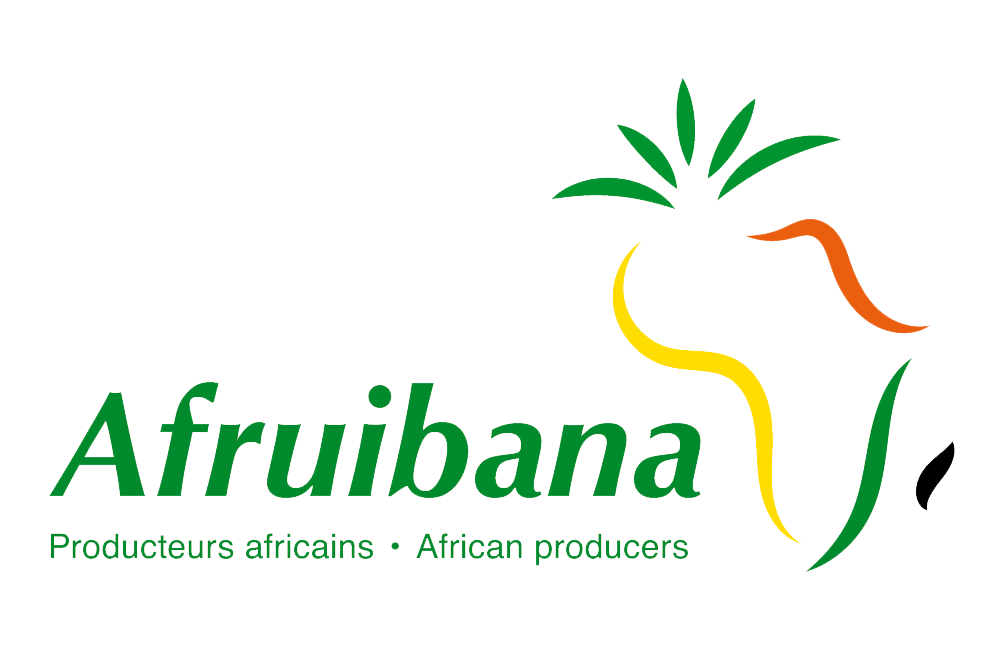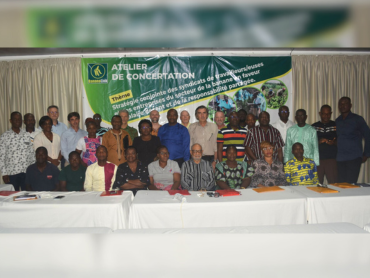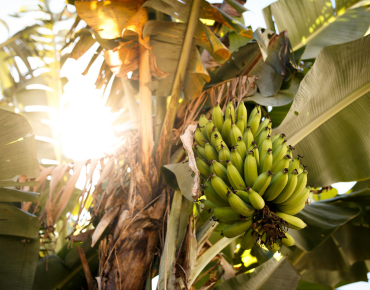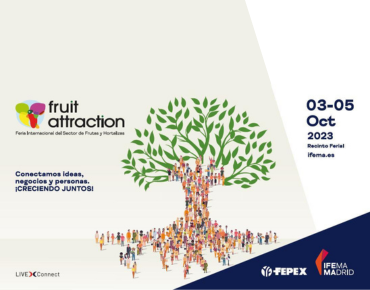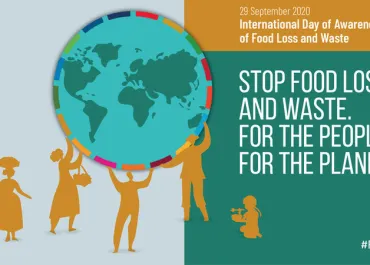
By reducing post-harvest agricultural losses, Africa has the means to improve food security on the continent.
30 August 2020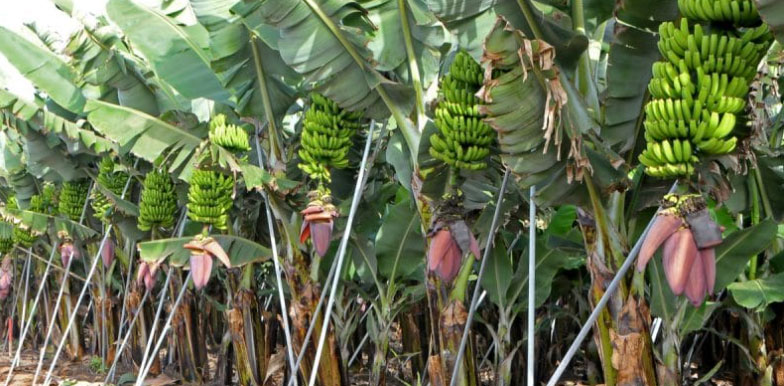
AFRICA: Afruibana promotes sustainable agriculture and joins IAM Africa
29 January 20213 questions to Matthieu Brun, Head of studies at Club Demeter, doctor in political science, associate researcher at the laboratory “Les Afriques dans le Monde” and at the Institut de recherche et d’études Méditerranée-Moyen-Orient.
Demeter is an international and cross-sector think tank dedicated to global food issues. The Covid-19 crisis has highlighted the shortcomings of different food supply systems and many countries seem to want to strengthen their efforts to move towards food self-sufficiency. What are, in your opinion, the prospects of the African continent at this level?
Even before we talk about the level of self-sufficiency and prospects on these food issues, I think we need to recall an important figure. 1/3 of current births in the world are African: the world population growth is driven by the African continent. The prospects for population growth on the continent that in 2100 4.5 billion will live on the African continent, for today 1.3 billion people. We often tend to think that the future of the world is in Asia; I believe, on the contrary, that a large part of this future lies south of the Mediterranean and particularly in sub-Saharan Africa. All the more so because beyond the simple fact of having a growing population, we also have, in qualitative terms, a changing population. It is becoming more and more numerous in the cities. We worked on this subject in Demeter and noted that the African cities of the future tend towards average populations of more than 5 million inhabitants. This means, even before talking about self-sufficiency and the level of perspectives on this subject, that lifestyles will also change.
Diets in Africa have changed a lot, both because of dietary diversification and because of the importance taken by the middle classes in North Africa and sub-Saharan Africa. People are eating more fruits and vegetables, more meat, and also more processed foods. Populations in African countries have health security requirements that have become increasingly important since the 1990s. The issue of food is no longer simply approached in terms of tons or kilos. It is also symbolic, political and geopolitical.
The rural population will also remain very important in absolute terms. When we look at the projections made by the UN, we still find a predominantly rural population in sub-Saharan Africa. It is important not to leave them out. When we want to think about the issues of supply and self-sufficiency, we will have to have policies that are also adapted to rural populations.
Now, if we come back to the issue of food, what we see is that the recent food crises, particularly those of 2008 with the international rise in commodity prices, have brought the issue of agricultural development back to the forefront, and even more so food security. After 2008, some states such as Senegal and Mali have created major agricultural development policies to combat food insecurity. Unfortunately, if there is one thing that will persist, it is the levels of food and nutritional insecurity in African countries, which can take the form of undernutrition but also obesity. Some African states have developed a kind of political narrative around food sovereignty and food autonomy, in response to the food riots of 2008. This is a very important element in election campaigns. In Nigeria in particular, President Buhari had made agricultural development a fundamental part of the election campaign.
Overall, if we return to the issue of food self-sufficiency, the rate of self-sufficiency has been deteriorating for several years. During the 1960s, the rate was around 1, which means a level where self-sufficiency is assured. Just before the food crisis of 2008, this rate was around 0.8 and since then it has eroded even more… Of course, it depends on the country, so talking about Africa in the singular makes no sense. In Africa, the rate of self-sufficiency varies enormously depending on the region. Some countries, such as Mauritania, Libya and Botswana are at extremely low levels of food self-sufficiency and are highly dependent on international markets. In other countries such as Morocco, Algeria, Tunisia, Egypt, rates range from 0.3 to 0.8, meaning that there is a high dependence on external markets, while for West and Southern Africa the level of food self-sufficiency is slightly higher.
The issue of food self-sufficiency is also studied in terms of products. For example, for wheat, one of the most traded commodities in the world and which is increasingly consumed in Africa due to the globalization of food, self-sufficiency is very low on the African continent. In Egypt, for example, a country that is a heavy consumer of wheat, one out of every two grains of wheat comes from abroad. Rice is still imported mainly from Southeast Asia, although in some areas such as the Gulf of Guinea the share of imports is lower.
The autonomy is greater for other products such as maize or tubers such as yam or cassava. It can therefore be said that, even if it fluctuates according to countries or commodities, food dependency on the outside is growing and has worsened since the late 1980s. This is not due to a deterioration in productivity, which has increased slightly, but rather to political choices which, combined with population growth, have contributed to this deterioration. The overall decline observed since the 1990s in the amount of development aid earmarked to finance agricultural policies has also played a role. Investment in the agricultural world has been stopped in favor of the development of industries and cities, etc. That was a major mistake. Abandoning agriculture has not only had major geopolitical consequences because the peasantry, when abandoned, will revolt and join the ranks of protest movements. But more than that, they have above all stopped supporting the productive apparatus in these countries and have turned to exports, to products that have been created abroad.
With the establishment of the African Continental Free Trade Area, many hope that the decompartmentalization of markets will lead to the development of continental agricultural trade. What is your opinion on this subject? Will this be enough to develop the sector and reduce the continent’s dependence on imports?
When we know that today, intra-African trade often represents no more than 20% of countries’ trade, we can see that the effective implementation of the AfCFTA presents immense challenges. The FTAA, unlike the free trade zones that are implemented in most regions, is there to promote internal trade, which is at fairly low levels. Today, the wealth of African countries comes primarily from sales of unprocessed raw materials outside the continent. It is imperative to create processing industries that above all create added value on the territory. And by developing agribusiness, we create jobs and business opportunities. This helps to generate value that remains in the territory.
The key challenge for the AfCFTA is the development of the infrastructure necessary for industrialization. For this reason, being in a continental zone is interesting because normally one should be able to invest the whole territory and not only a part of it. It is thus necessary to think as of today the complementarities between the regions. Africa is a large continent within which one finds on the one hand production systems that work on livestock, and on the other hand production systems that work on plants, etc. In order to think about complementarities, ambitious agricultural policies are needed. In particular, policies should be put in place to protect certain emerging industries. They are real levers for employment.
Returning to the issue of food dependency, the average food balance of more than 80% of African countries is in deficit. Agri-food imports in Africa today have risen from around 20 billion in 2005 to 75 billion dollars in 2013, and are now stabilizing at around 70 billion dollars. On the other hand, the value of exports does not exceed 40 billion. There is therefore a stake in the development of these exports. Moreover, when we look at the projections in terms of population growth, we see that the deficit in the total balance of trade will continue to grow. Thus, dependence on commodities is particularly problematic for these countries that combine both agricultural performance and low export revenues.
Today, the African continent is unable to produce what it consumes because of the lack of sufficient agricultural and community policies, and it exports what it cannot process. So a slowdown or crisis in import-export, such as the Covid-19 pandemic, can really challenge the entire continent. All the more so in terms of food security because stocks are very low. It also seems interesting to me to have a continental reflection on this issue of storage. It is an essential element when we think about food security and protection of the population. Today, this reflection is missing and within the framework of the AfCFTA, discussions can be initiated.
In light of the end of the Cotonou Agreement and the unveiling in March of the broad outlines of the new EU-Africa strategy, what do you think are the prospects for agricultural trade between the two continents?
It is important to remember that the European Union is the major partner of the African continent. However, this partnership is losing momentum. The presence of certain players on the African continent is growing, the volume of trade with China, for example, has increased by 200% in recent years. Conversely, trade with the EU is increasing slightly or even stagnating. As I have already explained, I am convinced that the future of the world lies in Africa. This continent is of great interest to foreign powers such as China and Russia, both for its resources and its market. Djibouti or Ethiopia are emblematic examples of countries in which China has largely settled and which were previously key partners of France. There is also a very strong growth in South-South trade with Brazil. All this creates a geopolitical environment in Africa of power relations around trade and resources from which the European Union should not distance itself.
So, if we look in more detail at this partnership that is being drawn up, we can see that Mrs. Ursula Von Der Leyen has repeatedly stated in her speeches that Africa is an essential element of the European Union’s foreign policy. This shows a strong political will on the part of those who govern the European Union today. France has very strong relations with the African Union and more generally with African countries. This year was very marked diplomatically by Africa-France relations, particularly with the summit that was to be held in Bordeaux last June. We really need to cultivate this relationship and not look away, especially since agriculture is an integral part of the five pillars of the Africa-EU partnership. The sector must position itself at the forefront of cooperation policy between the two continents, whether on the issue of green transition, digital transformation, peace or governance.
The agri-food sector is a sector of the future. If we look back on the case of wheat, the African continent produces only 10% of its consumption. The European Union is expected on this subject, particularly in the context of its trade relations with West and Central Africa. However, it is not a question of exporting products processed in France and thus prevent industries from being established in African markets. On the contrary, it is necessary to accompany, as French farmers have understood very well, the construction of the African agri-food industry. This is what differentiates the European Union from certain other partners on the African continent. The challenge is to have a partnership that is certainly commercial, but above all to develop a real cooperation based on responsible, co-constructed and concerted investments. If we think about the European Union’s main lines of work in terms of agricultural, digital and ecological transition, we realize that the same issues are at stake on the other side of the Mediterranean. European companies must be at the heart of this new cooperation in order to build locally sustainable industries.
